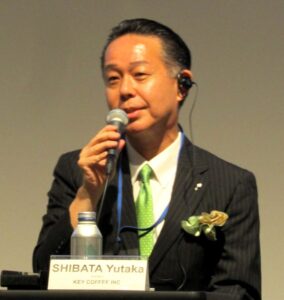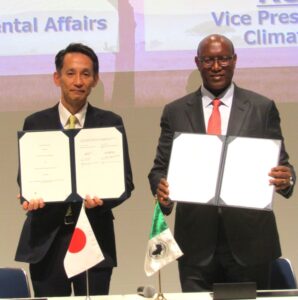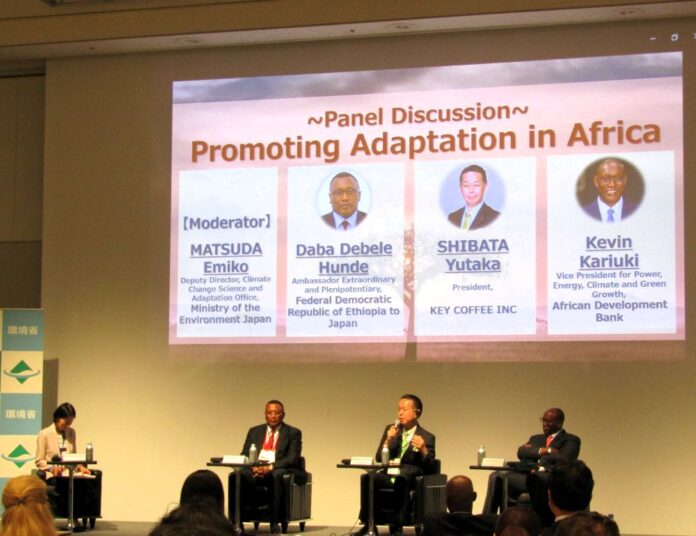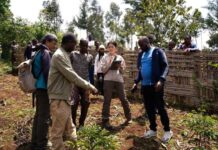Afforestation in Ethiopia is contributing to coffee production—.
This was revealed by Daba Debele Hunde, Ambassador Extraordinary and Plenipotentiary of the Federal Democratic Republic of Ethiopia to Japan, during a panel discussion at TICAD9 partner project “Africa-Japan Partnership for a Climate-Resilient and Decarbonized Africa,” held in Yokohama on August 21.
As deforestation has intensified in Ethiopia, Prime Minister Abiy Ahmed launched the “Green Legacy Initiative” as forest regeneration campaign in June 2019. The initiative aimed to plant 7.5 billion seedlings over four years, mobilizing 20 million citizens, and successfully achieved all its goals.
Politicians, women, and citizens participated in the initiative, which contributed not only to food security and economic development but also delivered positive impacts on coffee cultivation.
Ambassador Hunde states: “Afforestation enriches forests and is also necessary for Arabica coffee. Arabica coffee requires shade and grows under large tree trunks, so afforestation and replanting have supported coffee production.”

Responding to this, KEY COFFEE’s President Yutaka Shibata noted: “In coffee cultivation, various strategies for adapting to climate change are essential, but at the same time, conserving forests and biodiversity is equally important. Shade trees soften sunlight, beneath which coffee trees grow in protection. Particularly, the birthplace of Ethiopian coffee resembles satoyama (traditional Japan’s countryside) where biodiversity is well preserved. Coffee farming and biodiversity conservation can both coexist and thrive together.”
Kevin Kariuki, Vice President of the African Development Bank, touched on the bank’s projects on forest regeneration and climate change adaptation, remarking: “By cultivating heat-tolerant wheat in Ethiopia and Sudan, Ethiopia—which had been an importer three years ago—has now become an exporter. This is one of the best examples of adaptation.”
President Shibata further emphasized that providing such information on Africa helps build partnerships between African countries and Japan. He remarked: “Many people are not aware that Kilimanjaro and Mocha are African coffees, and we as a coffee company must also make greater efforts. As more information about agricultural products beyond coffee comes to light, Japanese consumers will feel a closer connection and greater familiarity with Africa.”

During the panel discussion, President Shibata also referred to KEY COFFEE’s project in Ethiopia commissioned by Japan’s Ministry of the Environment in April 2024, titled “FY2024 Proposal for a Bright Future for Small-Scale Coffee Farmers Vulnerable to Climate Change.”
Prior to the panel, a signing ceremony was held for a Statement of Intent (SOI) between the Ministry of the Environment and the African Development Bank to cooperate in global environmental conservation, pollution control, and nature protection.







